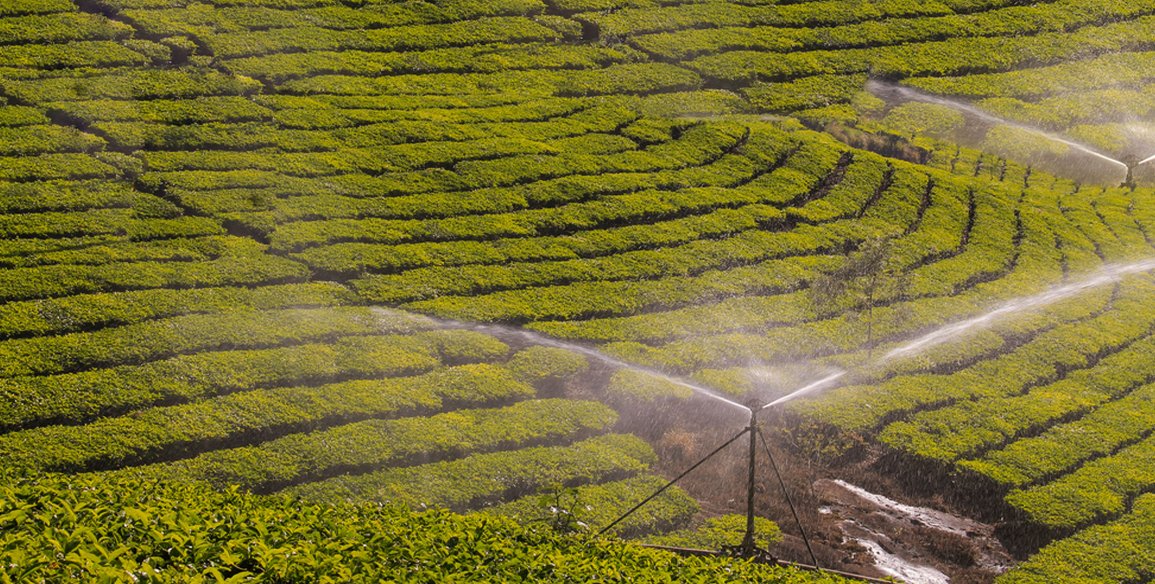Sustainable Farming: Effective Farming Practices for A Greener Tomorrow.
Agriculture is the foundation of human civilization. It is the core of providing food, livelihoods, and economic stability. Our traditional farming methods are highly affected by climate change, soil degradation, and water shortage. The future of agriculture lies in sustainable and green farming practices, a method of growing food without harming the environment.
What is Sustainable Farming?
Sustainable farming helps you grow crops and rear livestock while protecting the environment, conserving resources, and ensuring long-term agriculture innovations. Its key goals remain to reduce pollution, improve soil health, conserve water, and reduce waste.
The goal is to meet current requirements while preserving the ability to grow food for future generations. By embracing these smarter and eco-friendly agriculture techniques, we can ensure a greener, and reliable future for farming.
Key Sustainable Farming Practices
-
Integrated Pest Management (IPM)
Definition: IPM is an eco-friendly form of pest control that combines biological, mechanical, and chemical methods. It uses natural predators, crop rotation, and focused chemical applications to control pests, instead of majorly relying on pesticides.
Benefits:
-
It protects soil and water quality and reduces the use of harmful pesticides.
-
This also prevents bugs from becoming resistant to pesticides.
-
Enhances biodiversity by protecting beneficial insects and fauna.
-
Crop Rotation
Definition: When different crops are grown in the same field across seasons to improve soil fertility, reduce pests, and prevent diseases, it's called crop rotation. For example, a farmer grows legumes in one season and cereals in the next.
Benefits:
-
Replenish the essential nutrients and improve soil health.
-
Lowers the risk of soil-borne pests and diseases.
-
Improves productivity of crops by preserving soil structure and fertility.
-
Cover Cropping
Definition: To protect and enrich the soil, cover crops like clover, rye, or legumes, are sown between prime crop seasons. They offer a natural erosion barrier and help in nutrient retention.
Benefits:
-
It prevents soil erosion and protects the moisture in the soil.
-
Add organic matter, fix nitrogen, and improve soil fertility.
-
Lowers the need for herbicides, and halts weed growth.
-
Water Conservation
Definition: Water conservation involves techniques like rainwater harvesting, drip irrigation, and mulching to minimize water wastage and improve efficacy.
Benefits:
-
It prevents water depletion and lowers the dependency on groundwater.
-
This ensures the crop receives the right amount of water at the right time.
-
Saves water bills and increases farm profits.
-
Reducing Food Waste
Definition: This modern farming technique is used to reduce food waste from farm to table by storage, transportation, and harvesting methods. Farmers can turn their excess produce into goods with additional value.
Benefits:
-
By lowering greenhouse gas emissions from wasted food, it reduces environmental impact.
-
Saves labor, water, and energy.
-
By increasing food availability, it enhances food security.
-
Nutrient Management
Definition: Nutrient management involves applying compost, fertilizers, and biofertilizers in specific amounts based on soil testing. This makes sure that plants receive the right nutrients without overfilling the soil.
Benefits:
-
Enriches plant growth and soil fertility.
-
Water pollution is averted caused by excessive dismissal of fertilizers.
-
Lowers farmers' input expenses.
-
Crop Diversification
Definition: Rather than relying on a single crop, farmers grow multiple crops on a farm is called crop diversification. This method minimizes the risk and strengthens tolerance to climate change, making it a climate-smart farming.
Benefits:
-
Gives you multiple sources of income.
-
The spread of pests and diseases has decreased.
-
Improved soil structure and health.
-
Integrated Farming
Definition: Integrated farming integrates crops, livestock, and fish farming in a unified system where waste from one activity supports another. Cattle dung, for instance, can be utilized as a natural crop fertilizer.
Benefits:
-
Minimal waste and maximum use of resources.
-
Improved farm sustainability & productivity.
-
Invoke a balanced ecosystem that supports biodiversity.
-
Smart Irrigation
Definition: Smart irrigation delivers water only where and when it's needed by utilizing sensors, weather information, and automation. This saves resources and avoids overwatering.
Benefits:
-
Improves efficiency and reduces water loss.
-
Optimized watering schedules ensure healthier crops.
-
MInimizes the labor and energy costs.
-
System of Rice Intensification (SRI)
Definition: SRI is a modern farming technique for growing rice that uses less water and increases yields by planting fewer seedlings, keeping a wider spacing between them, and enhancing soil aeration.
Benefits:
-
Reduce water usage and increase rice productivity.
-
Healthier plants thanks to enhanced root growth.
-
Eco-friendly rice farming by reducing methane emissions.
Challenges and the Road Ahead
Although there are long-term advantages to sustainable agriculture solutions, making the shift can be difficult. Farmers may face a high start-up, a lack of awareness, or limited access to technology. These initiatives require the support of governments, agricultural associations, and consumers through awareness, incentives, and cautious food choices.
A Greener Tomorrow Starts Today
Sustainable farming is not just a method, it is the future of agriculture. Adopting eco-friendly agriculture practices will help produce enough food while also conserving natural resources for upcoming generations. Doesn’t matter if you are a farmer, policy maker, or consumer, sustainability benefits everyone.


